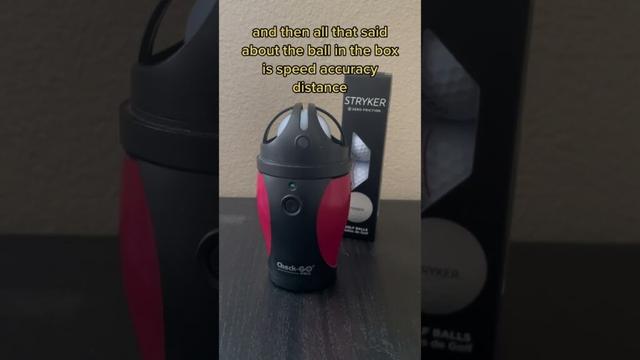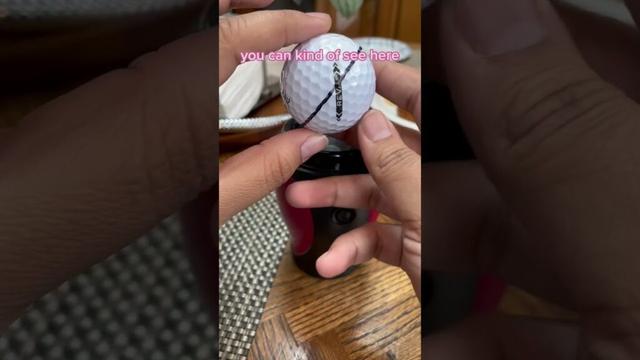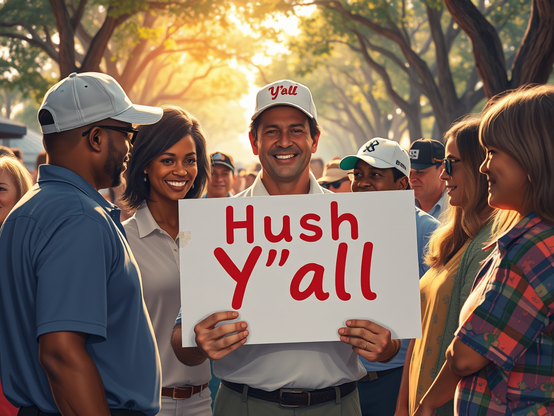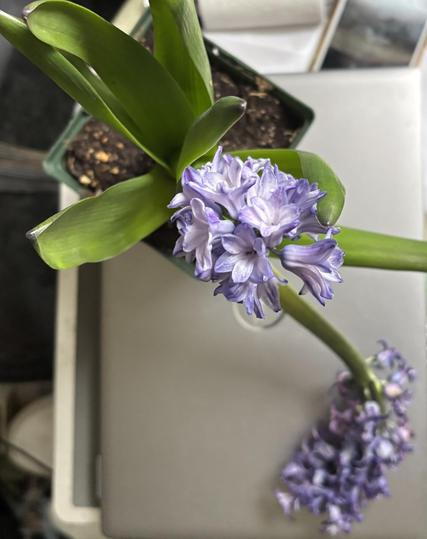https://www.fogolf.com/1099593/which-one-did-yall-think-was-the-worst/ Which one did yall think was the worst #GolfBall #GolfBalls #GolfBallsVideos #GolfBallsVlog #GolfBallsYouTube #GolfEquipment #GolfEquipmentVideos #GolfEquipmentVlog #GolfEquipmentYouTube #GolfTees #GolfTeesVideos #GolfTeesVlog #GolfTeesYouTube #WORST #yall
#yall
After reading and enjoying Percival Everett's JAMES, I have one nagging question:
Why did he spell it "ya'll"?
https://www.fogolf.com/1064051/i-had-mnever-heard-of-this-golf-ball-till-yall-asked-for-a-test-so-heres-all-the-info/ I had mnever heard of this golf ball till y’all asked for a test so here’s all the info #Asked #BALL #Golf #GolfBall #GolfBalls #GolfBallsVideos #GolfBallsVlog #GolfBallsYouTube #GolfEquipment #GolfEquipmentVideos #GolfEquipmentVlog #GolfEquipmentYouTube #GolfTees #GolfTeesVideos #GolfTeesVlog #GolfTeesYouTube #heard #HERES #Info #mnever #Test #yall
https://www.fogolf.com/1054513/happy-international-womens-day-to-all-my-favorite-lady-golfers-i-hope-yall-enjoy-this-extra-special/ Happy international womens day to all my favorite lady golfers i hope y’all enjoy this extra special #DAY #Enjoy #Extra #Favorite #GolfLady #GolfLadyVideos #GolfLadyVlog #GolfLadyYouTube #GOLFERS #HAPPY #hope #International #Lady #SPECIAL #women's #yall
https://www.fogolf.com/1037190/yall-have-been-asking-for-this-one-so-lets-talk-about-used-golf-balls-vs/ Y’all have been asking for this one so let’s talk about used golf balls vs #BALLS #Golf #GolfBall #GolfBalls #GolfBallsVideos #GolfBallsVlog #GolfBallsYouTube #GolfEquipment #GolfEquipmentVideos #GolfEquipmentVlog #GolfEquipmentYouTube #GolfTees #GolfTeesVideos #GolfTeesVlog #GolfTeesYouTube #let's #talk #yall
https://www.fogolf.com/1034663/i-literally-cant-think-of-anything-to-get-myself-this-year-so-yall-gotta-help-this-golf-girl/ I literally can’t think of anything to get myself this year so y’all gotta help this golf girl #girl #Golf #GolfGirl #GolfGirlVideos #GolfGirlVlog #GolfGirlYouTube #gotta #Literally #yall #Year
#yall know that #mass #surveillance #orwell #palantir style is not ok, but #parents have legitimate reasons for #surveillance of their #kid's #phones because #criminals using #AI generated #images #voice #video to lure #children into dangerous and deadly situations :(
https://www.fogolf.com/1030894/yall-its-not-worth-it-to-buy-the-fake-golf-balls-dont-do-it/ Y’all it’s not worth it to buy the fake golf balls don’t do it #BALLS #BUY #dont #FAKE #Golf #GolfBalls #GolfBallsVideos #GolfBallsVlog #GolfBallsYouTube #GolfEquipment #GolfEquipmentVideos #GolfEquipmentVlog #GolfEquipmentYouTube #GolfTees #GolfTeesVideos #GolfTeesVlog #GolfTeesYouTube #Worth #yall
https://www.fogolf.com/1018373/long-story-on-how-i-learned-this-rule-bur-yall-should-know-it/ Long story on how i learned this rule bur y’all should know it #bur #GolfRules #GolfRulesVideos #GolfRulesVlog #GolfRulesYouTube #Learned #Long #rule #Story #yall
How ‘y’all’ took over modern English : NPR
The word “y’all” has spread beyond the South, thanks in part to its blend of polite respect and folksy inclusivity. Here, a golf tournament volunteer holds a “Hush Y’all” sign at the Mobile Bay LPGA Classic in Mobile, Ala., in 2012. Kevin C. Cox / Getty Images“Y’all means all” has emerged as a slogan of support for immigrants and marginalized groups. In this 2018 photo, Ricardo Gámez of El Paso holds a sign bearing the words at the Tornillo Port of Entry in Tornillo, Texas, as medical professionals called for quick reunification of some 2,700 migrant children with their families. Paul Ratje / AFP via Getty ImagesJuly 16, 20255:00 AM ET, Heard on All Things Considered
By Bill Chappell 2-Minute Listen Transcript
Sorry, yinz. Fuhgeddaboudit, you guys: In the past 20 years or so, “y’all” has gone from being a Southernism to become America’s favorite way to use the second person plural, according to linguists.
“Y’all has won,” says Paul E. Reed, a linguist at the University of Alabama who studies Southern American English and Appalachian English.
Admirers appreciate y’all’s tidiness and utility. In particular, Reed says, young people across the U.S. seem to love y’all.
“It’s expanded much more outside of the South” among people who are under 40 years old, he says.
Long-term migration patterns have also helped y’all spread, from Black Americans who brought it with them out of the South during the Great Migration, to Northerners and others who have more recently adopted the term after moving to the South.
“It feels like home when I hear it,” says Kelly Elizabeth Wright, an assistant professor of language sciences at the University of Wisconsin-Madison who grew up in Tennessee. “It’s from where I was raised. But it makes me feel included and welcome. And I think that’s part of why people are embracing it, because it has this capacity to make others feel included and welcome.”
Where did y’all come from?
“It’s essentially as old as American English in a lot of ways,” Wright says.
The word has thrived because it’s utilitarian, filling a gap in standard English. We use y’all — and relatives like yinz (for those in Pittsburgh) and youse — because the language has long lacked a satisfying plural pronoun for “you.”
“Basically, all of the non-mainstream varieties are better than the mainstream variety, because ‘you’ being for plural is confusing,” Reed says.
There are competing (and in cases, complementary) ideas about y’all‘s origin. Many U.S. linguists believe that the American version of y’all likely developed from two sources that reinforced one another, according to Wright and Reed. They use technical terms like simultaneity and calque to describe it; the idea is that one path began in Britain, and the other in West Africa.
2-Minute Listen Transcript
Editor’s Note: Read the rest of the story, at the below link.
Continue/Read Original Article Here: How ‘y’all’ took over modern English : NPR
#2025 #America #Books #History #Language #NationalPublicRadio #NPR #Reading #Sayings #Southern #UnitedStates #WordHistory #YAll
As one who has studied #AncientGreek, I'm all for using the plural "you"! (And Greek, as well as many other languages, also had gender-neutral nouns).
Y'all, we need to talk about 'y'all'
July 16, 2025
Excerpt: "In the north of the British Isles, people sometimes combined ye, a second person plural pronoun for you, along with aw, meaning all. An example found in a letter dating from the 1700s suggests that Scots-Irish immigrants brought their version of y'all to Appalachia and the South. Around that same time, enslaved people who were being taken to the South from #WestAfrica brought their own unique term that literally translates to 'you all,' Reed says.
" 'As like a huge nerd,' Wright says, 'I love that both of these things can be true, that it can be from Black people and Scots-Irish settlers all at the same time.' "
@serpicojam Most of the arguments for "y'all" that I've seen over the past ten years are based on the perception that "you guys" is sexist. Weird that nobody in the article mentions that.
My dad was from Texas, and he maintained some of his accent, but I don't remember him ever saying "y'all." I think that's why I associate the word with the other aspects of Texas he rejected: racism, sexism, homophobia, religious bigotry, and general intolerance.
alright who's #accent screwed this up?
We're not getting a #WhiteChristmas we're getting a #WetChristmas
The Trump voters voted in the rich oligarchs. The poor will be fucked over and lose their money and die.
How God awful.
#environment fucked
#healthcare fucked
#SocialSecurity fucked
#BankingSystem fuvked
#Yall fucked
#Ukraine fucked
Russia is happy though
#EkkoAstral #announce #trans #aid #fundraisers for #Midwest #tour.
“We will be working with #TransOhio for our upcoming #Ohio #shows, as well as #YAll and #GenderNexus for our upcoming #indianapolis show, to raise money for direct #financialaid to #locals who are #trans as well as to bring #awareness and #joyous #raucous times to anyone who so chooses to attend.”
#Women #Transgender #LGBTQ #LGBTQIA #Entertainment #Music #Representation #crowdfunding
https://www.brooklynvegan.com/ekko-astral-announce-trans-aid-fundraisers-for-midwest-tour/
[Bluegrass intensifies]
"Now lis'n hayur, y'all, Ah done joined MAYYYASTADAHHHN!"
PSA: It's "MastOdon", not "MastAdon"!
#FediMeta #FediverseMeta #CWFediMeta #CWFediverseMeta #Mastodon #Y'all #MastodonNotMastadon
@tuban_muzuru @corbden
I’m trying to convince my elementary-school age daughters that #Yall is perfect for almost every occasion.




